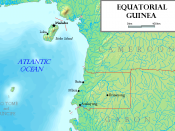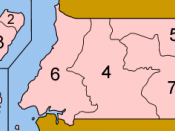For a long time now I have been constantly fascinated about other cultures, countries, languages and the way people live and Social Anthropology is a subject which not only gives me suggestions to answer my questions, but enhances my curiosity and fascination, as there are no 'one answer' questions to this subject and therefore there is always more to learn and inspire me.
I would like to focus mostly on Social Anthropology because it looks into many aspects of different cultures and because of the impact it can have on the way many world issues are viewed or even dealt with. The idea of using social anthropology perhaps to enter the voluntary/charity career sector came to me whilst, although she is not an anthropologist, reading Isabel Losada's book "For Tibet, with Love", in which she writes about her campaigning against the injustices in Tibet imposed by China.
Although I do not speak any others fluently, learning languages is another main goal for me.
As, besides my fascination in how languages change throughout the times, similarities and the meaning of words and where they come or are influenced from, languages obviously help one gain more insight about different ways of life, traditions and what they mean to the native. I also believe that is it important being able to interpret first-hand what a person is saying as in relying on a translator, a common grounding and the sense of "feel" for how the person is speaking or feeling is lost.
My previous visit to Guatemala was my first realisation that our perceptions of another country's state that we get through everyday media and statistics are not true reflections of all the areas and people who live there, and very rarely media can give a true picture of their lives and emotions. My average understanding of Spanish also allowed me to ask questions about the way the people live and their beliefs, such as religion, whereas if I had no knowledge of the language it would have been difficult to find someone able to translate for me.
I am currently studying on an Access course, which I specifically chose because it was one of a very few that offered a module on social anthropology. In taking this course, my aim is to prepare myself for university level study of social anthropology and to practise the skills needed for university which will increase my confidence in achieving university study, (for example, essay-writing and researching). The two other modules which I have chosen due to their relevance to social anthropology are South Asian Studies and Sociology. Through some research on an anthropology assignment I accidentally came across the fieldwork of Nigel Barley in his book "The Innocent Anthropologist" which is motivational for me in the sense of wanting to participate in fieldwork and research for Social Anthropology.
My first anthropology assignment allowed me to research a little on Equatorial Guinea about the affects of Spanish colonisation. The reading of situations in Equatorial Guinea, from both the present day and colonial times, has lead me to recently join Amnesty International.
Being able to apply for university study in the area of anthropology and language as a mature student gives me a greater advantage than ever before because, after some travel and years working, I am now determined and motivated in committing myself to study for my interests and career.





